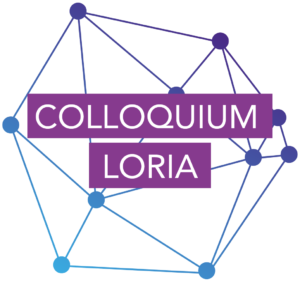[AI Chair] Interview with Steve Kremer

In December 2019, 40 French projects out of a total of 173 were awarded “Research and Teaching Chairs in Artificial Intelligence” following a call for projects launched by the French National Research Agency (ANR). Two projects are from the Lorraine region. Zoom in on Steve Kremer, Inria Research Director at the Loria, one of the selected projects’ coordinators.
What is your AI Chair’s research theme?
Steve Kremer: “Cryptographic protocols are an essential element in making online communications secure. These protocols rely on cryptographic primitives like encryption and digital signature to guarantee security in terms of confidentiality and authenticity. Achieving these security properties is the basic objective of the most widely deployed cryptographic protocol – Transport Layer Security (TLS) which underpins all “https” connections on the Internet. Many modern applications also have requirements regarding guaranteeing user privacy issues such as anonymity and the untraceability of users.
However, history has shown cryptographic protocols to be prone to errors and hackers have attacked their many design flaws. It is difficult to design such protocols because of an inherent unbalance by which designers need to think of all possible weaknesses to attack but hackers only need to find one weakness. It is difficult for humans to explore all the possible cases in a security proof while hackers who take control of a network are considered capable of intercepting, modifying and inserting messages.
The aim of the project is to design efficient algorithms and tools based on automatic reasoning techniques and then to use them to check there are no flaws in these cryptographic protocols. Automatic reasoning is the sub- domain of AI aimed at designing algorithms which enable computers to reason. These techniques are the bedrock of almost all modern verification tools. However, current analysis tools have difficulty with scaling and may require models to be (over)simplified when they are applied to cryptographic protocols which have actually been rolled out. Our objective is to overcome these limitations by designing new dedicated algorithms to be integrated into verification tools which would then be used to analyze the security analysis of these protocols. The tools will have increased efficiency, better automation and a broader scope for effective use.”
What are the possible applications in real terms?
Steve Kremer: “In concrete terms, we aim to develop automatic verification tools for applications in deployed protocols. Our developments will be guided by and fully checked on electronic voting protocols, protocols for mobile devices of the future 5G standard and instant messaging application protocols for example. Proving that the use of such verification tools is secure is increasing in importance. For example, in Switzerland the law requires proof of the security of electronic voting protocols. Cryptographic protocol standardization committees are also increasingly using these methods as it is essential to verify the protocols’ security during the design phase and prior to rolling out. We therefore need to develop techniques and tools to respond to these requirements.”
What does obtaining this Chair mean to you and what will it enable you to do?
Steve Kremer: “This is obviously fine recognition of our work and more generally of this research field. I share this recognition with Vincent Cheval and Lucca Hirschi who are Inria researchers at Loria and are participating in this project. In very practical terms, the project’s funding means we can carry out our research in good conditions and devote ourselves to our research without having to look for more funding if we want to take on a thesis student, an engineer or a post-doc or collaborate with foreign researchers. The funding available for such young researchers and engineers will clearly also enable us to train them in these new techniques”.
* Loria: the Lorraine Research Laboratory in Computer Science and its Applications is a joint research unit (UMR 7503) common to the CNRS, the French national research institute for digital science and technology (INRIA) and the Université de Lorraine.
This article was published on 18/02/2020 in factuel.univ-lorraine.fr.


